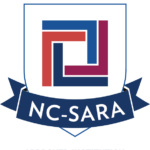Title IX and Nondiscrimination Complaints
For more information, visit the Title IX website or equal opportunity and nondiscrimination policy information. Submit the Online Title IX Report.
Kelly Durick-Eder, Title IX Coordinator, titleix@css.edu; 218-625-4444; 218-723-5961; Tower Hall, Room 2108
Stacy Deadrick, Title IX Deputy, sdeadric@css.edu; 218-723-6299; Burns Wellness Center, Room 258
All Other Complaints
Step 1: Review Current Policies
View the Catalog, Student Handbook or my.CSS for information regarding College policies and procedures about complaint practices. Existing policies and procedures may already exist to resolve the complaint.
Step 2: Informal Resolution
We encourage students to seek resolution to any concerns by discussing them informally with a staff member at the College. The student must first attempt to resolve the problem by contacting the relevant department directly and requesting a review of their situation.
Step 3: Formal Resolution
If you’re unable to resolve your concern through the College complaint policies and procedures or informally with the department, please reach out to the department contacts and organizations below. The student should follow up with an e-mail to the department’s representative and detail the issue for documentation.
Academic Affairs
Ryan Sandefer, Vice President, Academic Affairs, rsandefe@css.edu; 218-625-4931; Tower Hall, Room 2111
Athletics
Jessica Cherry, Athletic Director, jcherry@css.edu; 218-723-5934; Burns Wellness Commons 250
Student Affairs
Dory Kempf, Associate VP Student Affairs, dkempf@css.edu; 218-723-5997; Tower Hall, Room 2124
Financial Aid
Trish Johnson, Director, Financial Aid, tjohnson@css.edu; 218-723-7027; Tower Hall, Room 1122F;
Visit the student accounts page for policy information about refunds and student charges
Family Educational Rights and Privacy Act (FERPA)
Jen Jones, Interim Registrar, registrar@css.edu; 218-625-4800; Tower Hall, Room 1123
Police or Campus Security
- Dial 911 to call the police and begin the process of a police report;
- Dial 218-723-6175 to reach CSS Campus Security;
- Visit parking.css.edu for citation and appeal information; or
- Chuck Levings, Operations Supervisor-Department of Campus Safety and Security, clevings@css.edu; 218-723-6175; Science Center, Room 3212
Ethics Hotline
Faculty, staff and students are strongly encouraged to promptly report suspected violations of standards, laws and regulations, or related College policies and procedures to their supervisor, to their vice president or to anyone in management one is comfortable approaching. The College also has a confidential, toll free hotline (1-800-477-6064) that can be used to report suspected violations.
Step 4: Unable to resolve your concern
If a student has followed college policy and procedure as outlined above and still believes maltreatment has occurred, which could include no review process by the department or from a College publication, an adequate explanation of the final disposition did not happen, or there was a noted bias on the part of the decision-maker, a student can escalate the matter to the president. Submit the reporting form.
A written response will be sent to the student who initiated the complaint within 30 days.
External Complaint Resolution
If a complaint cannot be resolved at the College level, you may contact the Minnesota Office of Higher Education or utilize the Higher Learning Commission complaint process.
Pursuant to the United States Department of Education’s Program Integrity Rule, institutions providing online education are required to provide all prospective and current students contact information of the state agency or agencies that handle complaints against postsecondary education institutions offering distance learning within that state. The Complaint Process for Non-Minnesota Residents is provided by our out-of-state authorization entity, North Central State Authorization Reciprocity Agreement.
If you believe St. Scholastica is out of compliance with state statutes or accrediting requirements, please contact us first. We work hard to resolve all complaints and will do our best to address your issue.
Please address all correspondence to:
Diane Vertin, Chief Operating Officer
The College of St. Scholastica
1200 Kenwood Ave.
Duluth, MN 55811
218-723-6012
800-447-5444
oie@css.edu

 The College of St. Scholastica has been approved to participate in the National Council for State Authorization Reciprocity Agreements.
The College of St. Scholastica has been approved to participate in the National Council for State Authorization Reciprocity Agreements.